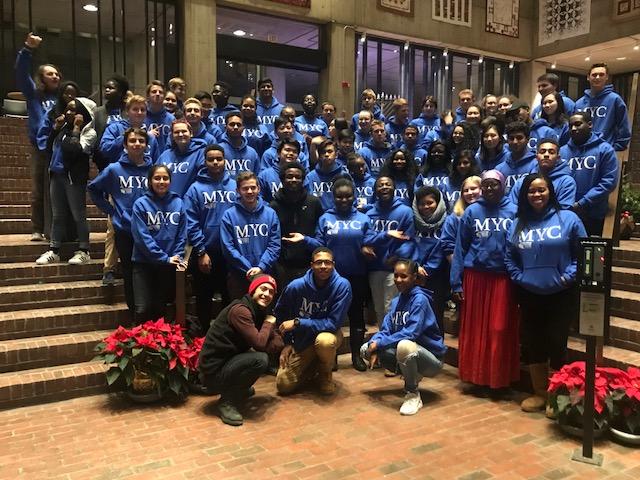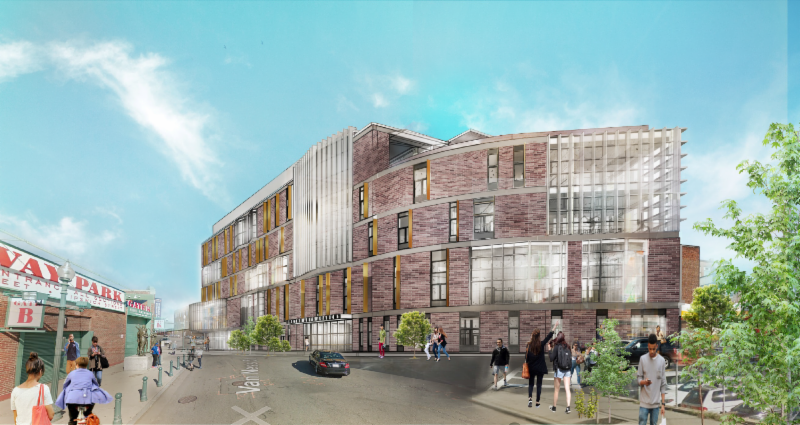Celebrating Major Milestone in Austin Street Project
Newton, MA – Newton Mayor Setti Warren and Austin Street Partners celebrated the ground lease signing between the City of Newton and Austin Street Partners today on-site at 28 Austin St.
"Celebrating this milestone for the development of the Austin Street Lot is a great moment for our community and for the many people who were vocal and active supporters of this project,” said Mayor Warren. “While I am proud to have been a champion of this concept for my time in office, I know that we would not be here without the business community, activists, and residents who supported this work for many years dating to before I came into office. This mixed-use development gives people of all ages and backgrounds the opportunity to live and thrive in Newton while also ensuring that Newtonville will be a vibrant village center in the years to come."
This public-private partnership will bring new housing and retail space to Newtonville, while preserving public parking at the Austin Street Municipal Lot. The development will include 68 rental apartments, 23 (33%) of which will be affordable, retail and restaurant space, a public plaza, and over 120 spaces for public parking. Due to the high percentage of affordable units, all 68 units will be added to the city’s Subsidized Housing Inventory (SHI).
“Today’s lease signing ceremony marks an important milestone for the redevelopment of Newton’s Austin Street Municipal Parking Lot,” said Scott Oran, one of the Austin Street Partners. “This has been and will continue to be a truly unique and long-term public-private partnership. Mayor Warren’s visionary leadership and unwavering support from his team of professional city staff have really ensured the project’s success. We look forward to starting construction in the spring.”
The signing of the ground lease is an important step forward for this project, marking the transition from planning to the construction phase once permits have been obtained. This 99-year ground lease lays out the expectations of the mix-use project as outlined in the special permit. This includes: the number of housing units, the size and shape of the building, additional payments for the streetscape and utility work, construction of the public plaza, and maintenance of the City-operated municipal parking lot.
While this ground lease is not the first of its kind in the city, it is the first time that a ground lease has been signed for a property without a structure on it. Austin Street Partners will pay the city $1,050,000 for lease of the land and the real estate taxes based on the assessed value.
Construction is expected to begin in January 2018, with initial foundation work, and to begin in earnest in March 2018. The project is slated for up to a 15-month construction period, with the building opening by summer 2019.
This development is just the first component to the city’s vision for a vibrant and revitalized Newtonville. Following substantial completion of construction, the city will embark on the Walnut Street streetscape enhancement project in the spring/summer of 2019.



















